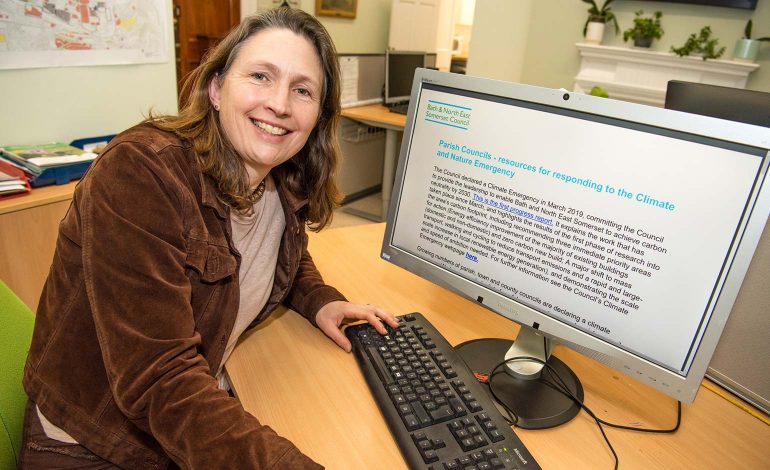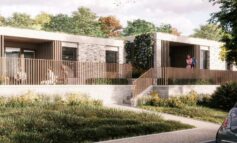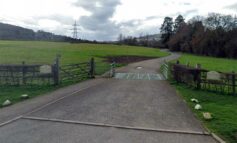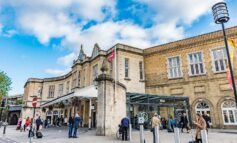A detailed update on Bath & North East Somerset Council’s ambitious action plans to help the area become carbon neutral by 2030 is set to go before councillors.

Cllr Sarah Warren, joint cabinet member for Climate Emergency at B&NES Council
It highlights the council’s focus on three priorities – to make buildings more energy-efficient and to have zero carbon new build; a shift to mass transport, walking and cycling; and rapid and large-scale increase in renewable energy.
This would see large-scale challenges such as retrofitting 65,000 homes to make them more energy-efficient, large-scale tree planting, the installation of renewable energy technology and introducing low traffic neighbourhoods as well as a shift in the way people travel around the area.
Since declaring a climate emergency last March, the council has appointed a cabinet member dedicated to climate emergency, announced £800k of additional funding and undertaken a substantial amount of complex strategic planning.
It has identified more than 150 separate actions where the council, working with partners and the local community, can make an impact on reducing carbon emissions.
The recent adoption of a new four-year Corporate Strategy incorporates the climate and nature emergency as one of the two core policies of the council, which means that it will shape everything the council does.
The council is also holding its first community-led day-long climate emergency event at the Guildhall on 9th April and is encouraging people to attend.
Councillor Sarah Warren, cabinet member for Climate Emergency, said: “A significant amount of very complex and detailed ground-breaking work has been done since we declared a climate emergency last year.
“We have been listening and working with partners and have set out three substantial carbon reduction priorities to help us achieve our ambitious 2030 goal.
“While radical action is needed, it takes time to meet huge challenges such as retrofitting 65,000 homes in order to make them more energy efficient.
“We are also focusing on a large-scale increase in local renewable energy generation, a major shift to sustainable methods of transport, energy efficiency improvements to most existing buildings and zero carbon new builds.
“We’ve also recognised the close interdependency between the climate emergency and nature and so are also committing to address this.”
Over the past year, the council has been talking and listening to communities about climate emergency and has produced a Parish Council Climate Emergency Toolkit, supported the B&NES Climate Emergency Schools’ Network.
It has also invested in:
- £323k to provide leadership to the whole of Bath and North East Somerset to achieve zero carbon 2030 plus an additional £64k boost in 2020/21
- £50k for initial work to mitigate the levels of nitrogen dioxide in the Temple Cloud and Farrington Gurney Air Quality Management areas
- £200k to support projects such as low traffic neighbourhoods which prioritise pedestrians and cyclists in residential areas
- 150k to deliver cycleways and footpaths across B&NES
- £60k to support the council’s tree and woodland strategy and tree planting
- £25k for improving guidance to householders on energy efficiency
Councillor Warren added: “As a council we want to lead the way and becomes carbon neutral through a raft of measures including increased use of electric vehicles and the introduction of a carbon literacy programme for staff and reducing waste by, for example, encouraging recycling and discouraging the use of single-use plastics.”
Among the 150 separate specific measures identified in the council’s Corporate Delivery Programme 2020/21, are:
- Encouraging the use of local suppliers;
- Replacing the energy-capture equipment in the King’s Bath, which no longer works, to maximise the potential of thermal water to supply the World Heritage Centre and Clore Learning Centre;
- Enabling and inspiring local home energy efficiency improvements by providing expert advice and information and signposting to grants and loans to help cover costs through the Energy at Home advice service, in parallel with an investigation into the most suitable council delivery model for significant home energy improvements in the medium- to long-term;
- Develop the business case for the Bath River line and East of Bath cycle route;
- Providing air quality monitoring data to measure the impact of introducing traffic controls, ensuring Community Infrastructure Levy funding helps to improve sustainable transport infrastructure;
- Reviewing B&NES Green Infrastructure Strategy;
- Develop new B&NES Tree & Woodland Strategy;
- Launch the new Journey Towards Zero Waste Strategy 2020-2030 which proposes to adopt and exceed the national statutory target of 65% recycling five years earlier by 2030;
- A push to encourage 100% of households within the district to actively recycle everything they can, with a priority on increasing the amount of households that recycle their food waste.
Councillor Warren added: “Anyone interested in finding out more about how they can make a difference on the climate emergency is encouraged to come to our community-led day-long event at the Guildhall on 9th April – and to bring along a friend who might not otherwise have attended. A limited amount of bookable childcare is available.”
To book a place, click here.



